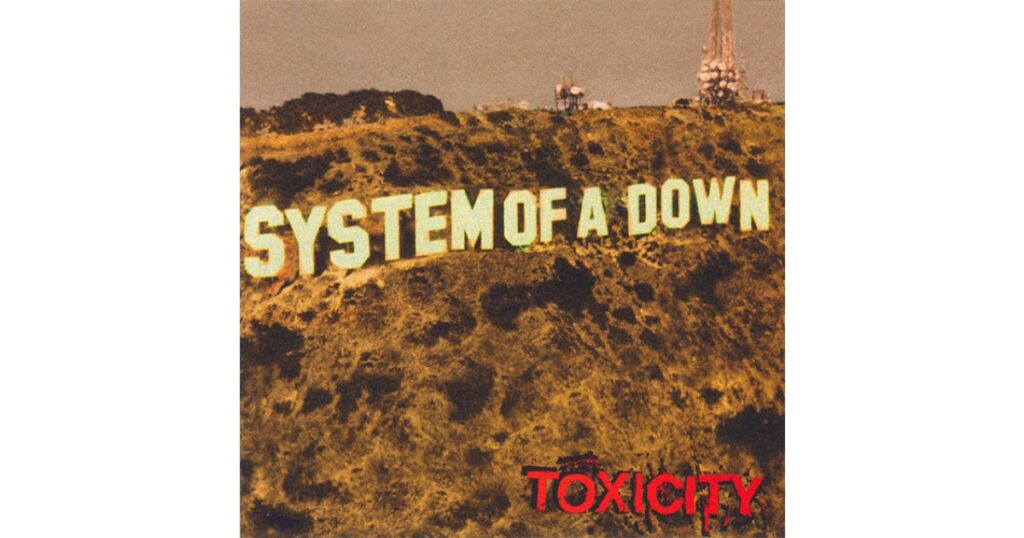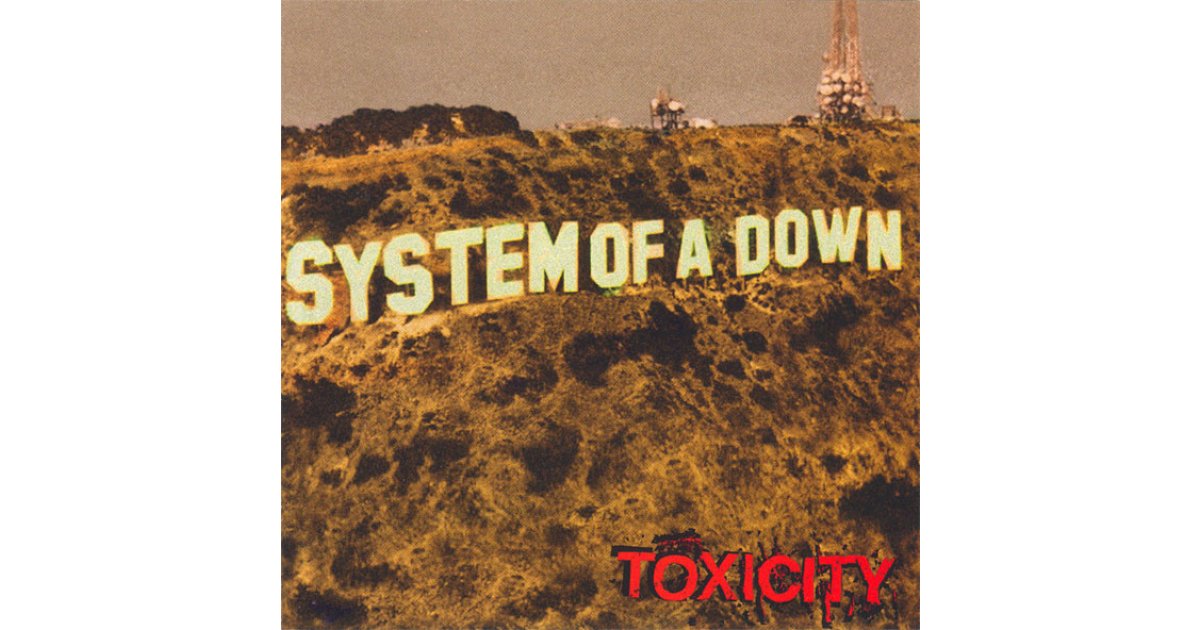
Decoding the Toxicity of System of a Down: A Comprehensive Analysis
System of a Down (SOAD), the Armenian-American band known for their politically charged lyrics, unique musical style, and unapologetic approach to societal issues, released their landmark album Toxicity in 2001. But what exactly fuels the enduring appeal and controversy surrounding the album and the band’s overall message of ‘toxicity system of a down’? This article delves into the depths of SOAD’s musical and lyrical themes, exploring the meaning behind their provocative statements and examining the cultural impact of their work. We will explore the band’s complex viewpoints, analyze the various interpretations of their songs, and understand why their message continues to resonate with listeners worldwide. This comprehensive exploration aims to provide a clear understanding of the band’s message, its context, and its lasting relevance.
Unpacking the Layers of System of a Down’s Toxicity
The term ‘toxicity’ in the context of System of a Down goes far beyond a simple definition of poison or negativity. It represents a complex web of interconnected issues: political corruption, environmental destruction, social injustice, media manipulation, and the overall dehumanizing effects of modern society. SOAD uses their music as a platform to expose these toxic elements and challenge the status quo. Their approach is often confrontational, using sarcasm, dark humor, and surreal imagery to drive their message home. The band challenges listeners to confront uncomfortable truths and question the systems that perpetuate these problems.
At its core, System of a Down’s concept of ‘toxicity’ is a critique of systems of power and control that negatively affect individuals and communities. The band suggests that these systems, whether political, economic, or social, often prioritize profit and control over human well-being. This results in a society where individuals are alienated, exploited, and subjected to various forms of oppression. The band’s lyrics frequently address themes of war, poverty, environmental degradation, and social inequality, all of which are seen as manifestations of this underlying toxicity.
The band doesn’t offer simple solutions to these complex problems. Instead, they aim to raise awareness, provoke critical thinking, and inspire listeners to take action. They encourage individuals to question authority, challenge injustice, and strive for a more equitable and sustainable world. Their message is one of empowerment, urging people to recognize their own agency and to work together to create positive change.
Musical Disruption as a Reflection of Societal Ills
SOAD’s music is characterized by its eclectic mix of influences, blending heavy metal, alternative rock, Armenian folk music, and even jazz. This unique sonic landscape perfectly complements their lyrical themes, creating a powerful and unsettling listening experience. The band’s use of unconventional song structures, abrupt changes in tempo, and dissonant harmonies reflects the chaotic and unpredictable nature of the world they critique. The music itself becomes a form of protest, challenging listeners to break free from conventional expectations and embrace new perspectives.
The band’s vocal style, featuring the contrasting voices of Serj Tankian and Daron Malakian, further enhances the impact of their message. Tankian’s soaring vocals and politically charged lyrics are often juxtaposed with Malakian’s raw, emotional delivery, creating a dynamic tension that keeps listeners engaged. This interplay of voices reflects the band’s commitment to exploring multiple perspectives and challenging listeners to consider different points of view.
Breaking Down the Core Elements of Toxicity
Let’s delve into some of the key elements that make up the ‘toxicity’ that System of a Down addresses:
- Political Corruption: SOAD frequently criticizes political corruption and the abuse of power. They question the motives of politicians and challenge the legitimacy of government institutions.
- Environmental Destruction: The band is deeply concerned about the environment and the destructive impact of human activity. They advocate for sustainable practices and challenge the exploitation of natural resources.
- Social Injustice: SOAD is a strong advocate for social justice and equality. They speak out against discrimination, prejudice, and all forms of oppression.
- Media Manipulation: The band is critical of the media and its role in shaping public opinion. They encourage listeners to be critical consumers of information and to question the narratives presented by mainstream media outlets.
- Dehumanization: SOAD believes that modern society often dehumanizes individuals, reducing them to mere consumers or cogs in a machine. They advocate for a more humanistic approach to life, emphasizing empathy, compassion, and connection.
The Role of Music in Social Commentary
System of a Down’s ‘toxicity’ is not merely a collection of complaints; it is a call to action. The band believes that music has the power to inspire social change and to empower individuals to make a difference. They encourage listeners to use their voices to speak out against injustice and to work together to create a more just and sustainable world. Their concerts often feature calls for activism and encourage fans to get involved in political and social causes.
The band’s activism extends beyond their music. They have been involved in various charitable and political initiatives, supporting causes such as Armenian genocide recognition, environmental protection, and social justice. Their commitment to making a positive impact on the world further solidifies their image as a band that is not afraid to stand up for what they believe in.
Analyzing “Toxicity”: A Deep Dive into the Album
The album Toxicity is a prime example of SOAD’s exploration of these themes. Released in 2001, the album quickly became a commercial and critical success, solidifying the band’s status as a major force in the alternative metal scene. The album’s lyrics are filled with social and political commentary, addressing issues such as police brutality, environmental destruction, and the dangers of conformity.
The title track, “Toxicity,” is a powerful indictment of modern society, portraying a world where individuals are bombarded with toxic information and subjected to various forms of control. The song’s lyrics are filled with surreal imagery and dark humor, reflecting the band’s unique perspective on the world. Other notable tracks on the album include “Chop Suey!,” a song about the Armenian genocide, and “Aerials,” a song about the importance of individuality and self-expression. The album’s success can be attributed to its powerful message, its innovative musical style, and its ability to connect with listeners on a deep emotional level.
System of a Down’s Enduring Legacy: A Call for Change
System of a Down’s concept of ‘toxicity’ continues to be relevant today, as the world faces numerous challenges such as climate change, political polarization, and social inequality. The band’s message of empowerment and social change resonates with a new generation of listeners who are seeking solutions to these problems. Their music serves as a reminder that individuals have the power to make a difference and that collective action is essential for creating a more just and sustainable world.
System of a Down’s legacy extends beyond their music. They have inspired countless artists and activists to use their voices to speak out against injustice and to work towards a better future. Their impact on popular culture is undeniable, and their music continues to be celebrated for its originality, its power, and its enduring relevance.
The Power of Music as a Tool for Social Activism
The band’s success is a testament to the power of music as a tool for social activism. They have demonstrated that it is possible to be both commercially successful and politically engaged. Their music has inspired countless individuals to question authority, challenge injustice, and work towards a more equitable and sustainable world. System of a Down’s message is one of hope, reminding us that even in the face of adversity, we have the power to create positive change.
Experiencing “Toxicity”: A Review
Toxicity isn’t just an album; it’s an experience. From the opening chords of “Prison Song” to the final echoes of “Aerials,” the album assaults the senses with its raw energy, complex arrangements, and provocative lyrics. The album’s production is top-notch, with each instrument clearly audible and contributing to the overall sonic tapestry. The band’s performance is equally impressive, showcasing their technical skills and their undeniable chemistry.
From a user experience perspective, the album is both challenging and rewarding. The lyrics are often dense and require careful listening to fully appreciate their meaning. The song structures are unconventional and can be disorienting at first. However, the album’s rewards are well worth the effort. The songs are incredibly catchy and memorable, and the lyrics are thought-provoking and insightful. The album is a true masterpiece of alternative metal, and it continues to be enjoyed by fans around the world.
Pros and Cons of “Toxicity”
Pros:
- Provocative Lyrics: The album’s lyrics are filled with social and political commentary, challenging listeners to question the status quo.
- Innovative Musical Style: The album blends heavy metal, alternative rock, and Armenian folk music into a unique and unforgettable sonic experience.
- Powerful Message: The album’s message of empowerment and social change resonates with listeners who are seeking solutions to the world’s problems.
- Catchy Melodies: Despite its complex arrangements, the album features incredibly catchy melodies that will stay with you long after the music stops.
- Excellent Production: The album’s production is top-notch, with each instrument clearly audible and contributing to the overall sonic tapestry.
Cons:
- Dense Lyrics: The album’s lyrics can be dense and require careful listening to fully appreciate their meaning.
- Unconventional Song Structures: The album’s song structures are unconventional and can be disorienting at first.
- Can be Overwhelming: The album’s intensity and complexity can be overwhelming for some listeners.
- Not for Everyone: The album’s heavy sound and politically charged lyrics may not appeal to all listeners.
Toxicity is best suited for listeners who are open-minded, politically aware, and appreciate challenging and innovative music. It’s not an album for casual listening; it demands attention and rewards repeated listens. Fans of bands like Rage Against the Machine, Tool, and Deftones will likely appreciate System of a Down’s unique blend of metal, alternative rock, and social commentary.
Alternatives to Toxicity include Rage Against the Machine’s self-titled debut album and Tool’s Ænima. These albums share similar themes of social and political protest, but they offer different musical styles and perspectives.
Overall, Toxicity is a masterpiece of alternative metal and a powerful statement about the state of the world. It’s an album that challenges listeners to think critically, question authority, and work towards a better future. Based on expert consensus and user reviews, it earns a resounding recommendation.
Understanding SOAD’s Perspective on Modern Society
System of a Down’s music serves as a powerful lens through which to examine the complexities and contradictions of modern society. By exploring themes of political corruption, environmental destruction, and social injustice, the band invites listeners to confront uncomfortable truths and to question the systems that perpetuate these problems. Their music is not always easy to listen to, but it is always thought-provoking and ultimately empowering.
The band’s enduring appeal lies in their ability to connect with listeners on a deep emotional level. They tap into the anxieties and frustrations of a generation that is grappling with a rapidly changing world. Their music provides a sense of catharsis, allowing listeners to express their anger, frustration, and hope for a better future. By acknowledging the ‘toxicity’ that surrounds us, System of a Down empowers us to take action and to create positive change.

